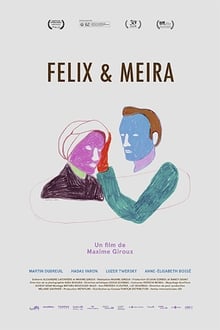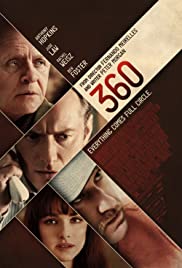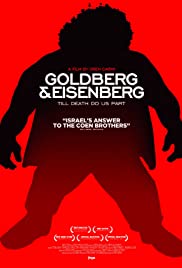Search

The filmmaker goes to discover Meir the village where her great-grandparents were born, the place her grandparents left, but continued to love. When she goes, she discovers a village that people are trying to leave.


A young married woman from Montreal’s Orthodox Jewish community finds freedom from the strictures of her faith through her relationship with a young man who is mourning the death of his estranged father.

The year 2000 approaches in Jerusalem’s Orthodox Mea Shearim quarter, where the women work, keep house, and have children so the men can study the Torah and the Talmud. Rivka is happily and passionately married to Meir, but they remain childless. The yeshiva’s rabbi, who is Meir’s father, wants Meir to divorce Rivka: “a barren woman is no woman.” Rivka’s sister, Malka, is in love with Yakov, a Jew shunned by the yeshiva as too secular. The rabbi arranges Malka’s marriage to Yossef, whose agitation when fulfilling religious duties approaches the grotesque. Can the sisters sort out their hearts’ desires within this patriarchal world? If not, have they any other options?

Meirose strives to create heaven in her family, with her husband and their two children. One day, Ray, a man from her past, returns and wants to build his lost paradise with Meirose and Akbar.

A 14-foot giant mako shark is spotted in the waters of Portugal’s Azores region; underwater cinematographer Joe Romeiro and his wife, search the teeming depths around the ancient islands to capture the beast on film.

Do you look back on the optimism of the 1997-2001 era as a lost golden age, or do you see it as a period of naïvety, delusion and folly? There’s a lot of nostalgia for the nineties at the moment, especially from people too young to remember it who see the decade as a simpler, pre-internet time. Modern nostalgia often draws on corporate American-90s mall culture, but what about British culture? With I’ve Been Trying To Tell You – made to accompany the Saint Etienne album of the same name – director Alasdair McLellan evokes the era through the fog of memory. The resulting film, shot in locations from Grangemouth to Portmeirion to Southampton, is both beautiful and enveloping.

Set during the tense 19 days of the Yom Kippur War in 1973, Israeli Prime Minister Golda Meir is faced with the potential of Israel’s complete destruction. She must navigate overwhelming odds, a skeptical cabinet and a complex relationship with US Secretary of State Henry Kissinger, with millions of lives in the balance. Her tough leadership and compassion would ultimately decide the fate of her nation and leave her with a controversial legacy around the world.

Meir (Sasson Gabay of The Band’s Visit and Shtisel) and Tova (Rita Shukrun) are a long-married couple living in an upscale high-rise in Tel Aviv. Itzik (Lior Ashkenazi) is their new neighbor, a worldly modeling agent and bachelor. The couple attend Itzik’s karaoke parties and soon become obsessed with him, competing with each other, and other residents of the building, for his attention.

Inspired by Arthur Schnitzler’s classic La Ronde, screenwriter Peter Morgan and director Fernando Meirelles’ 360 combines a modern and dynamic roundelay of stories into one, linking characters from different cities and countries in a vivid, suspenseful and deeply moving tale of love in the 21st century. Starting in Vienna, the film beautifully weaves through Paris, London, Bratislava, Rio, Denver and Phoenix into a single, mesmerizing narrative.

The tomboyish, outgoing Julieta is the daughter of a member of the Palmeiras soccer club board. She is constantly frustrated by what she sees as institutional bias against women in soccer. One day while watching her beloved Palmeiras, she is struck by a handsome man, Romeu, that she sees rooting for the Palmeiras’ chief rivals, the Corinthians. After meeting the same man again in the middle of eye exam, Julieta and Romeu quickly become a couple. However, in order to avoid incurring the wrath of her parents, Romeu is forced to pretend to be an adoring Palmeiras fan, an increasingly difficult task for the die-hard Corinthiano.

Goldberg is short and thin. He wears glasses. He’s lonely. He’s a mediocre computer programmer that lives in Tel Aviv and spends most of his energy searching online for a girlfriend. His only friend is Audrey, his beloved female dog. Eisenberg is a thug. Tall, fat, approaching middle age and not completely sane. He spends his days slouching around Meir Park, harassing innocent bystanders and doing business with petty thieves and small-time criminals. Unfortunately the two cross paths, and Eisenberg decides that they should start hanging out. But something in his demeanor says that he wants to be much more than just friends…This is a story about random meetings with strangers that lead to anxiety and paranoia. About lonely people in the big city. About losing control.